Get involved with ProleWiki! https://prolewiki.org/
- 15 Posts
- 11 Comments

 26·7 months ago
26·7 months agoMan I hate this dude
The history of the Middle East since 1948 shows Israel constantly striving for peace, only to be rebuffed time and again by the Arabs.
– Antony J. Blinken, “Lebanon and the Facts”, 1982
Israel is not, has never been, nor will ever be the irreproachable, perfectly moral state some of its supporters would like to see. Israelis are, after all, only human. Still, one pedestal the Jewish state can stand on–and stand on alone in the Middle East–is that of a democracy. Yes, there are tragic excesses in the occupied territories. True, the invasion of Lebanon claimed many innocent lives. The fact remains, though, that Israelis question themselves and their government openly and honestly. Eventually, as in other democracies, those responsible for wrongdoing are held accountable.
– Antony J. Blinken, “Israel’s Saving Grace”, 1982
The summer of 1982 may be remembered in history as the time Israel passed from adolescence to adulthood. The illusions of a child are left behind. But the Jewish state remains special, an oasis in a desert. Its citizens have built a working democracy from scratch in a region that has no others. Israelis must treasure that democracy, protect it with all their will. For if they don’t, the growing pains that are Lebanon, Shatila and Sabra, the repression of Arabs and the feud between Ashkenazim and Sephardim could turn into a plague.
– Antony J. Blinken, “The Danger Within”, 1983

 0·7 months ago
0·7 months agoI recommend Geopolitical Economy Report.
Edit: Just remembered there is also People’s Dispatch, whose articles I sometimes read, but they also have a YouTube channel. I haven’t really watched their videos though. Maybe someone else can comment further about it.

 0·7 months ago
0·7 months agoNot sure of my favorite but check this out
Ultimately it means meet/talk with other people and engage in planning and work to accomplish something together, whether that thing is big or small.
Easiest thing to do is look around for people who are already organized, e.g., a party or other org focused on a particular issue. IMO if someone has no experience with organizing whatsoever, then they can benefit from joining almost anything, even something run by liberals, anarchists, etc., just simply to see what kind of dynamics are at play when people are trying to work together to accomplish something. A lot of orgs and such are not easy to find online. It’s better to just go to protests and demonstrations or to community projects and start meeting people and learning about what they are doing by word of mouth. People who are involved in organizing are typically going to be open to teaching/involving new people. A demonstration is the kind of place where people are purposely trying to educate and involve the public. Just don’t come across as a cop and be wary that some people trying to involve you in things might be cops themselves lol. Approach groups with a critical eye, join a small-scale/low-risk org whose goals you support to learn about the practical dynamics of how organizing works and to build up a network of acquaintances and friends, and keep learning from there. Trying to organize something from scratch with no experience is possible but if you don’t have a clear idea of what you’re doing nor have a group of other people who are keen and intrinsically motivated to work on the goal, it’s going to be pretty difficult.

 0·1 year ago
0·1 year agoAt this point the men’s rights groups are mainly doing harassment campaigns (leading to various cases of suicides), but outbursts like this have some precedent, e.g. in 2018: South Korean Women Beaten Until Skull Exposed For ‘Looking Like Feminists’ (some accounts of this say the women were making fun of the men, though obviously that doesn’t justify beating them), or this:
In August [2021], a South Korean man dressed as the Joker live-streamed himself harassing activists who had gathered in Daejeon city to protest against advertisers profiting from YouTube videos that promoted hatred against women.
His words were chilling: “I heard that there were f*****g feminists here; I’m going to murder them all.”
According to Lee Hyo-rin, from the women’s rights group Haeil, no passers-by stepped in as the man chased the activists down the street.
[…} Since the demonstration on August 22, Lee from Haeil has not been able to resume her normal life.
Her personal information and photographs were leaked on antifeminism forums online, and she was caught up in a violent cyber-harassment campaign that included death threats.
A report by local broadcaster SBS last month said a woman was asked about her opinion on feminism during a job interview. She was also asked whether men and women had distinct physical strengths and told to remove her face mask so the men who interviewed her “could judge her facial expressions”.
Eun, 24, told This Week in Asia she was asked whether feminism was the reason behind her short haircut during a job interview in Seoul earlier this year. The male interviewer said it did not fit the image expected of her by the company.
[…] Suicide rates among South Korean women in their 20s rose by more than 40 per cent last year, while the figures among men of the same age declined during the same period.
As for attacks on women in general (without the feminism component), those of course happen as well, e.g.: After another femicide, many Korean women say nowhere feels safe.
Note I haven’t carefully read the above articles nor am I informed enough on this issue to produce a thorough analysis, this is just to give the general idea of the tense environment around feminism and MRAs in south Korea’s public discourse, obviously these articles approach from a liberal lens.

 0·1 year ago
0·1 year agoKnowing how the wheel of history spins now has given us the ability to predict it and therefore the power to take our destiny into our own hands and shape history after our desire.
I’m not an expert and still in the process of learning about this, but I would say your understanding of it here more or less lines up with my understanding from what I have read so far.
As I understand, Juche dismisses the idealist world outlook as groundless and also rejects mechanical materialism, and holds that the dialectical materialist view is the scientific view of the world. However, it is considered that merely holding a dialectical materialist view does not automatically cause people to start using it as a tool to change the world to humanity’s benefit, which is the question that the Juche idea is mainly concerned with: defining and promoting humanity’s role in changing the world, and increasing peoples’ consciousness of this role. As I understand it, Juche promotes the concept that humans (as a collective whole) not only can but should center themselves in changing the world to benefit them, within the real scientific limits of the world, i.e. with the knowledge of the laws of nature and society which operate independent of human’s will. This is seen as a necessary attitude in humanity’s emancipation from oppression, as simply having a dialectical materialist view does not necessarily cause people to start acting on humanity’s behalf even if it does give them an accurate scientific view of reality’s motion.
Texts about Juche seem to primarily focus on asserting that it is correct for humans to center their own needs in how they shape the world, and also focus on discussing humanity’s historical pursuit for independence and methods of preserving that independence when it is achieved through progressive revolutions, with the primary focus now being the struggle to end imperialism and capitalism and to defend and evolve socialism, in order to remove exploitation from society and continue on humanity’s path to pursuing independence from all restrictions, both natural and social, overcoming them with a methodical and scientific understanding combined with an attitude of intentionally centering human needs and desires in the way humanity consciously shapes the world.
If someone sees something wrong with my understanding, please let me know. I am still in the process of learning about this.

 0·1 year ago
0·1 year agoYes, the US is purposely starving the world.
Yep. I doubt you’ll care to read the following but I’m putting it here for others to see.
The United States is the world leader in imposing economic sanctions and supports sanctions regimes affecting nearly 200 million people. … Targeted countries experience economic contractions and, in many cases, are unable to import sufficient essential goods, including essential medicines, medical equipment, infrastructure necessary for clean water and for health care, and food. … While on paper most sanctions have some humanitarian exemptions for food, necessary medicines and medical supplies, in practice these exemptions are not sufficient to ensure access to these goods within the targeted country. (Center for Economic and Policy Research)
It’s well known that sanctions are ineffective for pressuring governments, but very effective at waging siege warfare by starving and killing ordinary citizens by disease and infrastructural failures. Continuing to use sanctions in this way and to this extent, when this is well known, is definitely “purposely starving the world”. An independent expert appointed by the Office of the High Commissioner for Human Rights said in 2019 that US sanctions violate human rights and international code of conduct and can lead to starvation. Why does the US continue to be the world leader in imposing sanctions, increasing its use of sanctions by 933% over the last 20 years, when this is well known? It’s because they know the effect, and they’re doing it on purpose.
We can also look at some US internal memorandums from before it was more politically incorrect to talk about starving people in other countries. In 1960, U.S. officials wrote that creating “disenchantment and disaffection based on economic dissatisfaction and hardship” through denying money and supplies to Cuba would be a method they should pursue in order to “bring about hunger, desperation and overthrow of government” in Cuba.
In other countries, we see a pattern of US officials and US-backed institutions purposely denying aid and loans to governments they don’t approve of, and then suddenly approving aid and opening up loans when a coup brings a leader they’re happy with into power. When Ghana was requesting aid under an administration that the West’s bourgeoisie didn’t like, U.S. officials said this: “We and other Western countries (including France) have been helping to set up the situation by ignoring Nkrumah’s pleas for economic aid. The new OCAM (Francophone) group’s refusal to attend any OAU meeting in Accra (because of Nkrumah’s plotting) will further isolate him. All in all, looks good.” The “situation” they were helping to set up was a coup they knew was going to happen. After a US-friendly coup took place, suddenly it was time to give the “almost pathetically pro-Western” government a gift of “few thousand tons of surplus wheat or rice”, knowing that giving little gifts like this “whets their appetites” for further collaboration with the US. You will find the same song and dance in numerous other countries, Chile being a well-documented example, if you simply look for it.
The US imposes starvation and depravation of other countries on purpose, using it as an economic wrecking ball, then pats itself on the back for giving “aid” to the countries which have been hollowed out by such tactics.
The loans which magically become available to countries that meet the US approval standards are not so pretty either, as a former IMF senior economist said, he may only hope “to wash my hands of what in my mind’s eye is the blood of millions of poor and starving peoples”, there not being “enough soap in the world” to wash away what has been done to the global south through the calculated fraud of the IMF, whose tactics are designed to accomplish the same kind of goals as the sanctions are–to prevent the economic rise of any country but the US by wrecking its competitors economically, tearing apart their local manufacturing capacity and transforming them into mere resource extraction projects, redirecting their agricultural industries into exports to make sure they reach a level where they are more reliant on imports to feed themselves, and reliant on foreign aid which is ripped away whenever they do not do what the US approves of or make friends with who the US wants them to.
I refer to #3, why don’t they just do it then?
This is what secondary sanctions and the US’s various protection rackets have always been designed to prevent, which has definitely been a powerful tool for them, but it seems with the rise of the new non-aligned movement and de-dollarization its becoming a less successful one and we can see countries “just doing” what they want more and more while the US leadership waves around, as usual, more sanctions and military threats in response.

 0·2 years ago
0·2 years agoThat’s difficult because there is a lot of layers of brainwashing about it which make it difficult for people even believe their own eyes, for example when seeing a video of a north Korean person smiling they will imagine sadness and terror in the person’s eyes, or seeing something good happen in the country must be some kind of staged show, etc.
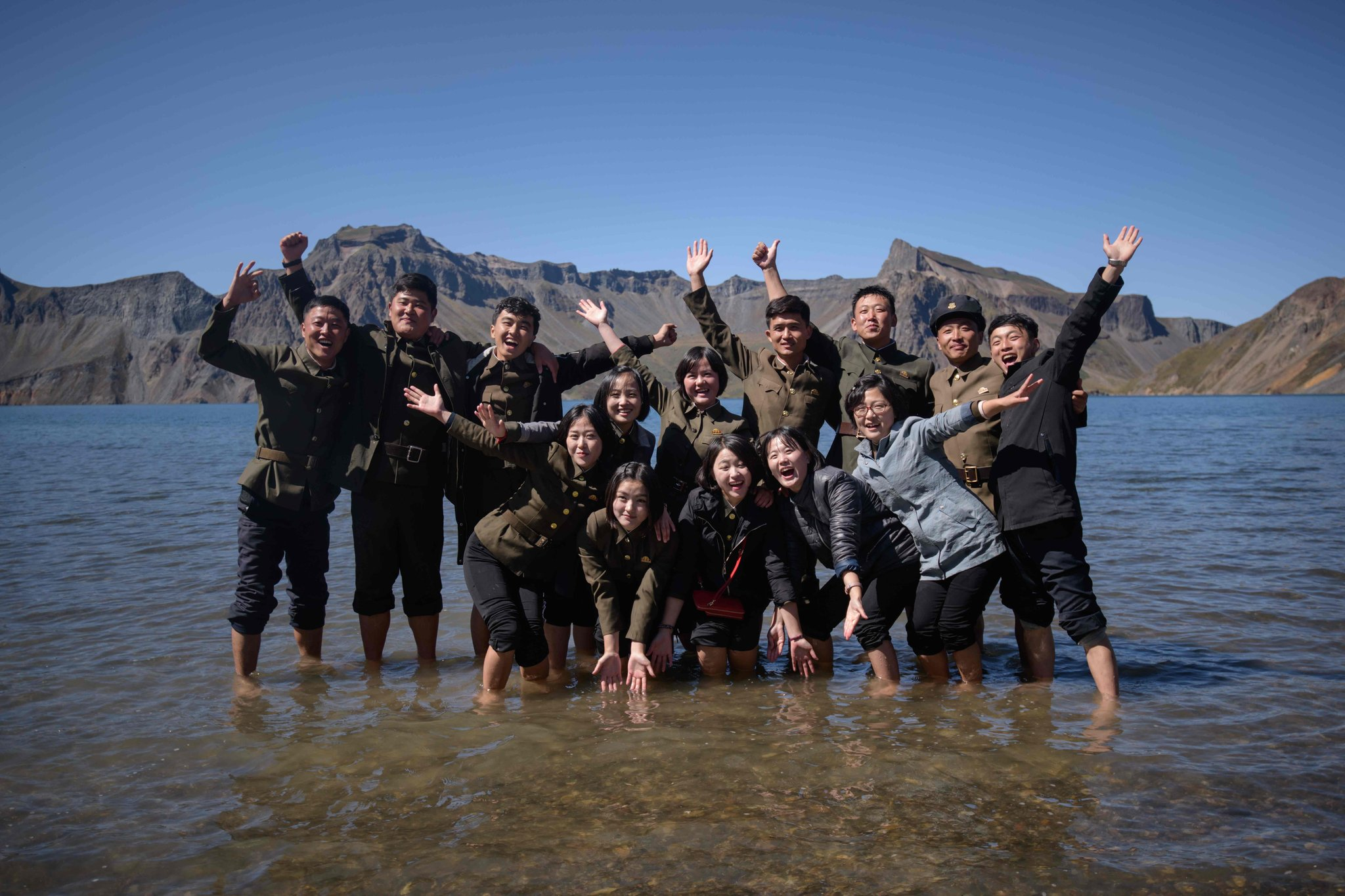
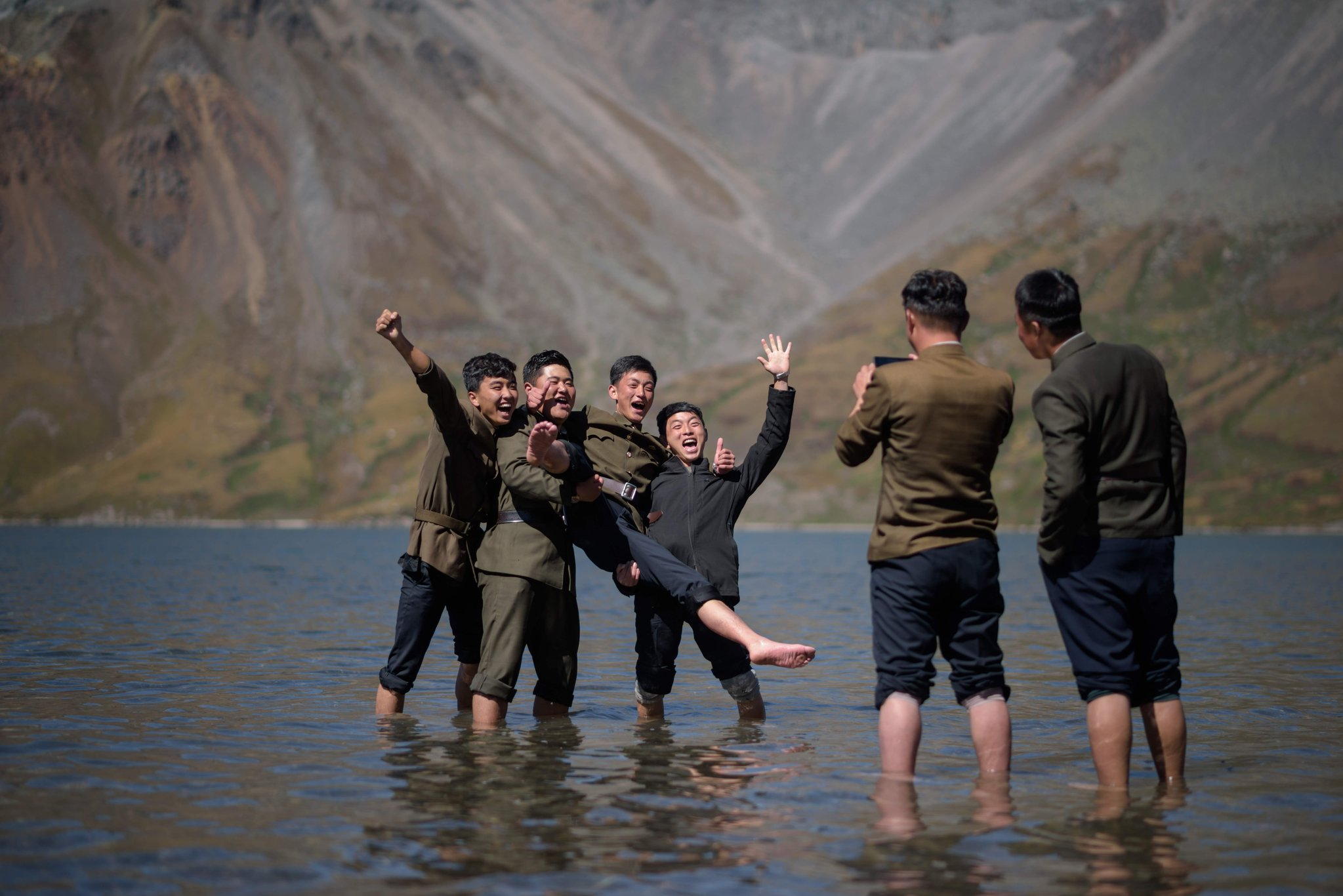
Even images of north Koreans doing something as simple as smiling or using a smart phone causes cognitive dissonance in some people. Because a lot of the lies about DPRK are such ridiculous fabrications and distortions of reality, it becomes really difficult to “disprove” this big cloud of nonsense. For this reason I think there is no one single antidote or quick fix to the problem.
I would say one of the things that helps change peoples’ minds is stories about defectors who want to return to DPRK. I think for people who have been heavily propagandized, the fact that anyone would want to return to DPRK after going to south Korea starts to make them question what they have been told about it. The 2016 south Korean documentary “Spy Nation” (자백) also deals with this topic, but goes more into detail about the NIS torture programs to produce false confessions of spying from people as well as the NIS forging documents, along with keeping people in south Korea against their will.
Another thing to consider is that north Koreans used to be able to work abroad until UN sanctions forced thousands of them to return to DPRK in 2017. But it’s possible to see videos from before that time (and a few since), where south Koreans would randomly run into north Koreans while in Russia (no eng subs sorry) and have friendly chats (turn on eng subs), and the north Koreans would explain they are working in Russia but return to DPRK periodically.
I also recommend checking out this video by Ktown Social Club.
Quote from mainstream south Korean news about the problem of fake news about DPRK, quote from a former UN human rights consultant about lies and financial incentives for sensational defector testimonies, and a quote from a pro-unification activist about how US sanctions are killing north Koreans every day
Here’s a mainstream south Korean news article talking about the problem of fake news about DPRK:
Time and time again, conservative outlets and foreign media circulate and reproduce rumors based on questionable sources … once the government or foreign news outlets like CNN become involved, the reports tend to take off like wildfire. The result is an endless feedback loop, where the claims of a “North Korean source (or defector)” are published in the domestic press and then the foreign press, then republished in the domestic press and echoed by the administration, politicians, and defectors in South Korea. Notably, retractions and apologies are rarely ever provided when the reports are shown to be false. (Source)
Here’s a former UN Human Rights consultant who’s been interviewing north Koreans since the 90’s:
There are numerous other stories told by North Koreans that are later found unreliable … there is also a fundamental question about heavily relying on defectors’ testimonies as credible evidence … One of these issues is cash payments for interviewing North Korean refugees, which has been standard practice in the field. … North Korean refugees are well aware of what the interviewer wants to hear. Whether it is the UN COI, the US Congress or the Western media, the question has been consistent: why did you leave North Korea and how terrible is it? The more terrible their stories are, the more attention they receive. The more international invitations they receive, the more cash comes in. It is how the capitalist system works: competition for more tragic and shocking stories. (Source)
Here’s a pro-unification essayist about the ongoing war on DPRK:
This build-out of military infrastructure occurs in the context of the ongoing war against the D.P.R.K. … The labyrinthine financial restrictions and outright bans on items containing metal by the U.S. and U.N. have deprived the D.P.R.K.’s agricultural and medical sectors (along with all other sectors) of basic supplies and funds, and stymied efforts to deliver aid to the more than 15 million people living in poverty. The resulting delays and shortfalls affecting U.N. health programs alone resulted in 3,968 deaths in 2018 — including 3,193 children under the age of 5 and 72 pregnant persons. This figure does not include deaths caused directly or indirectly by shortages of basic necessities, shocks to the local economy, and impacts on critical infrastructure like water sanitation systems. Yet even with this figure of 3,968 deaths in a single year, we can extrapolate that the United States is killing approximately 11 people a day in North Korea, about 9 of them children under the age of 5. (Source)
I would say that a debunking of lies about DPRK would at some point have to include learning about Korea in general. People have been programmed to compare north and south Korea without considering any context of Korea’s history or culture, or even basic facts, such as the fact that south Korea has a bigger population than the north, that south Korea was the country’s agricultural center before division, or that south Korea’s economy developed under a series of right-wing fascist dictatorships with widespread torture, extrajudicial killings, and surveillance and outside investments to prop it up. There are also many things about DPRK that are portrayed as strange or inexplicable in Western media, but that can also be easily seen in south Korea either currently or in the past, or come as a result of Korea’s division.
Another quote from the above essay, about how north and south Korea are compared to each other to legitimize US imperialism and occupation of Korea
Where South Korea offers a vindication of capitalist modernity that transforms conquest into liberal magnanimity, North Korea figures as a permanently abjected enemy whose depravity eclipses and necessitates the domestic and international brutalities of the U.S. world order. Packaged as foils according to the interdependent racial logics of the model minority and yellow peril, the two Koreas, or rather their simulacra, comprise an axiomatic terrain for the resolution of neoliberal contradictions. The extravagant villainy ascribed to the D.P.R.K. functions as a mirror that reflects U.S. settler colonialism back as an idealized Western liberty, affirming military hegemony as moral hegemony. The United States’ dubious distinction as the most carceral, nuclearized and militarized nation in world history is obscured through a fixation on North Korean nuclear weapons, prisons, and autocracy. The war is thus framed as a heroic struggle for the globalization of liberal freedoms rather than an incomplete conquest sustained by the U.S.’ geopolitical investment in the ongoing state of division, war, and occupation. (Source)
For a general overview of demographic info and of living standards in DPRK, which do not paint a picture of a dystopia but rather an ordinary country impacted by sanctions and war, I recommend taking a look at this report, which is co-authored by the United Nations Population Fund and the DPRK’s Central Bureau of Statistics: “DPRK Socio-Economic, Demographic and Health Survey 2014.” (Also, if you’re interested, it’s worth comparing to UNFPA summary of DPRK census population data from 2008.)
A point of note from the 2008 report: “Housing is provided by the government free of charge. It is the responsibility of the state to provide housing to everyone. Hence, there is no homeless population.” (p. 4)
Some points from the 2014 report:
Click for lots of statistics
- 55% of DPRK’s population lives in four contiguous provinces (which includes Pyongyang).
- More than six out of ten people in DPRK reside in urban areas (61.2% of the population), while 38.8% of the population lives in rural areas.
- The majority of the households resided in row houses (42%), followed by single/detached houses (33%). The percentage of households currently living in apartments (25%) is likely to increase in the future.
- The majority of households had access to various consumer durables, with rural households having higher ownership of livestock in comparison with urban households.
- In all, the majority of households in the country, irrespective of place of residence, had access to basic amenities.
- The main source of water supply is piped water into the dwelling unit (82.1 percent) followed by tube-well/borehole (10.5 percent). The two sources together account for over 90 percent of all dwellings. A small percentage depends on public tap or a protected waterhole, while an insignificant percentage depends on unprotected sources.
- Private flush toilets are most common, with over 6 out of 10 dwellings depending on it, followed by private pit latrine. The two sources together accounted for more than 90 percent of toilet facilities.
- Almost all the households are electrified and have electricity connections.
- Possession of television is almost universal and is higher than radio ownership (88%). Over four fifths of the households have at least one bicycle, three fifths own a rice cooker and two fifths each have a landline telephone and a deep freezer or refrigerator respectively.
- The majority of urban and rural households had access to a heating system. Different types of heating fuel were used in urban and rural areas.
- Coal and wood heating systems are the most common sources of heating among the dwellings in the country. Likewise, the majority of dwellings depend on coal and wood as sources of cooking fuel.
- Nine out of 10 households were headed by male members who were aged between 30 and 59 years, and 3.9 members resided in each household on average.
- Nearly seven out of 10 persons over 16 years of age are actively engaged in work. The proportion of rural persons working is marginally higher than urban.
- The majority of the population is engaged in the primary sector and is more or less equally split between secondary and tertiary sectors.
- The knowledge of at least one family planning method is almost universal among women in the DPRK. On average, women were aware of six methods of birth control, and more than 90 percent of demand for family planning has been satisfied.
- All women who received pre-natal healthcare attended more than the WHO recommended minimum of four visits (nearly three quarters of women visited more than 10 times for services during their pregnancy); the majority of women receiving prenatal care reported different services availed as per the standard package of services and all of them were either highly satisfied or satisfied.
- Three-quarter of births occurred in county and village hospitals/clinics, 17 percent in central/provincial hospitals and the remaining nine percent at home. Skilled assistance at birth is nearly 100 percent; even home births received skilled assistance at the time of delivery.
- The expectancy of life at birth is 72 years; the increase in the overall life expectancies is slowly bouncing back to where it was in 1993.

 0·2 years ago
0·2 years agoSaw this interview on Fox News back in the day between right-libertarian Ron Paul and conservative pundit Bill O’Reilly. In this interview O’Reilly is trying to warmonger about Iran and then Ron Paul is like “Well I’m not scared of them, I see the Iranians as acting logically and defensively, considering we used the CIA to overthrow their government in the 50’s” and then O’Reilly goes into turbo damage control mode and starts yelling over Ron Paul about how “We don’t need a history lesson” and tries to continue his warmonger rhetoric while Ron Paul keeps saying “I’m trying to tell you it’s our own policies of overthrowing governments that are causing terrorism to increase” etc.
Basically this conversation was a moment where the contradictions of U.S. foreign policy and imperialism and the inner conflicts of the right wing got accidentally exposed on the main conservative TV network and they tried to sweep it under the rug real fast. Seeing how Ron Paul, the only person I ever heard on TV saying the US should leave the Middle East, got completely smeared and regarded as a total joke and disregarded by everyone, got booed and side-eyed/cringed at in a debate for explaining the logical steps that led to 9/11 and for quoting Al-Qaeda’s reasons, showed me something about how things work.
Anyway, thanks Ron Paul for making me a communist lol

 0·2 years ago
0·2 years agoI’m impressed you remained so calm.
Discussions like this are extremely frustrating. Atrocity propaganda can be created with virtually no effort, and it proliferates easily once set in to motion. Countering it with facts requires you to have seemingly encyclopedic knowledge of history and politics on hand at all times.
A (slightly edited) quote on war-time lies: “Man’s habit of lying is not nearly so extraordinary as his amazing readiness to believe. It is, indeed, because of human credulity that lies flourish.”
Anyway, here’s a quote from a guy who worked for the CIA for 25 years. I hope it can help you if you get into another conversation like this.
I want to reveal to those who still believe in the myths of the CIA what it is and what it actually does. My explanation will not include the usual pap fed to us by Agency spokesmen. My view backed by 25 years of experience is, quite simply, that the CIA is the covert action arm of the Presidency. […] The CIA is not an intelligence agency. In fact, it acts largely as an anti-intelligence agency, producing only that information wanted by policymakers to support their plans and suppressing information that does not support those plans. As the covert action arm of the President, the CIA uses disinformation, much of it aimed at the U.S. public, to mold opinion. It employs the gamut of disinformation techniques from forging documents to planting and discovering "communist” weapons caches. But the major weapon in its arsenal of disinformation is the “intelligence” it feeds to policymakers. Instead of gathering genuine intelligence that could serve as the basis for reasonable policies, the CIA often ends up distorting reality, creating out of whole cloth “intelligence” to justify policies that have already been decided upon. Policymakers then leak this “intelligence” to the media to deceive us all and gain our support. (Ralph W. McGehee, “Deadly Deceits: My 25 Years in the CIA”, p. 15)
Aa shorter quote of his with the same essence: “The CIA is not now nor has it ever been a central intelligence agency. […] Disinformation is a large part of its covert action responsibility, and the American people are the primary target audience of its lies.” (Deadly Deceits, p. 192).
You may also find this useful: Former CIA Agent John Stockwell Talks about How the CIA Worked in Vietnam and Elsewhere - he talks about how the CIA gives false stories to reporters, some reporters know this and purposely publish false stories planted by the CIA and some don’t know that they are planting CIA stories.
In my war, the Angola war, that I helped to manage, 1/3 of my staff was propaganda. […] I had propagandists all over the world, principally in London, Kinshasa, and Zambia. We would take stories which we would write and put them in the Zambia Times, and then pulled them out and sent them to journalists on our payroll in Europe. But his cover story, you see, would be what he would’ve gotten from his stringer in Lusaka, who had gotten them from the Zambia Times. We had the complicity of the government of Zambia, Kenneth Kaunda if you will, to put these false stories into his newspapers. But after that point, the journalists, Reuters and AFP, the management was not witting of it. Now, our contact man in Europe was. And we pumped just dozens of stories about Cuban atrocities […] We didn’t know of one single atrocity committed by the Cubans, it was pure raw false propaganda to to create a an illusion of communists, you know, eating babies for breakfast and so forth, totally false propaganda.
More from him:
Another thing [the CIA does] is to disseminate propaganda to influence people’s minds, and this is a major function of the CIA. And unfortunately, of course, it overlaps into the gathering of information. You have contact with a journalist, you will give him true stories, you’ll get information from him, you’ll also give him false stories. […] You buy his confidence and set him up. We’ve seen this happen recently with Jack Anderson, for example, who has his intelligence sources, and he has also admitted that he’s been set up by them, every fifth story just simply being false. You also work on their human vulnerabilities to recruit them, in a classic sense, to make them your agent, so that you can control what they do so you don’t have to set them up. Sort of, you know, by putting one over on them so you can say, “Here, plant this one next Tuesday.” […] The Church Committee brought it out in 1975, and then Woodward and Bernstein put an article in Rolling Stone a couple of years later. Four hundred journalists cooperating with the CIA, including some of the biggest names in the business, to consciously introduce the stories into the press.
Good luck talking with people in the future about things like this. Often, there is not much hope in a conversation like this with a person who is not poised to listen. But on the off chance you have some favorable conversation conditions sometime, I hope these quotes can help.
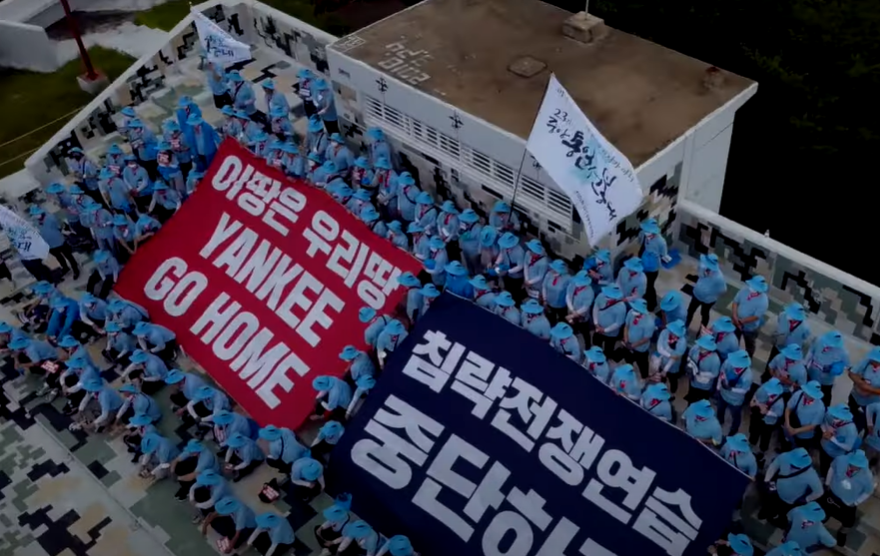
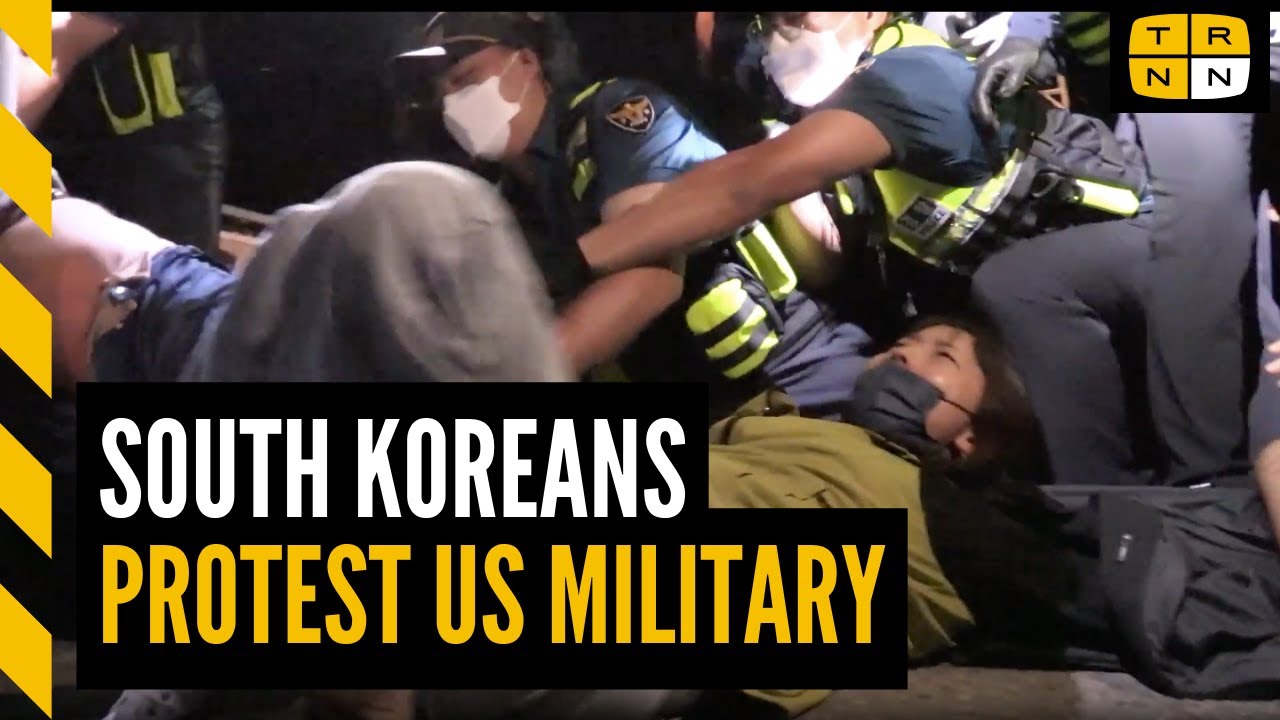

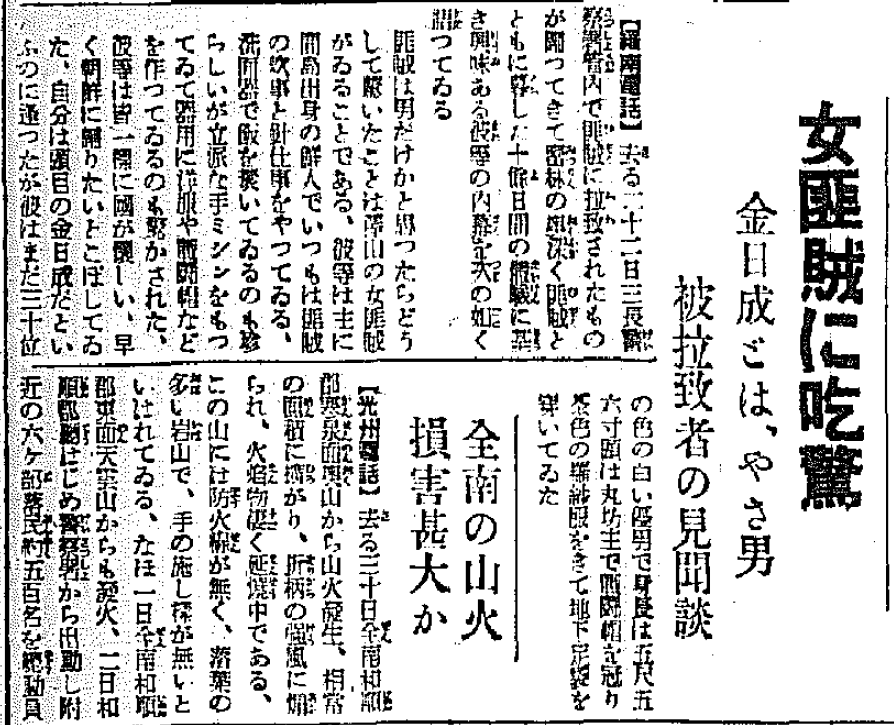


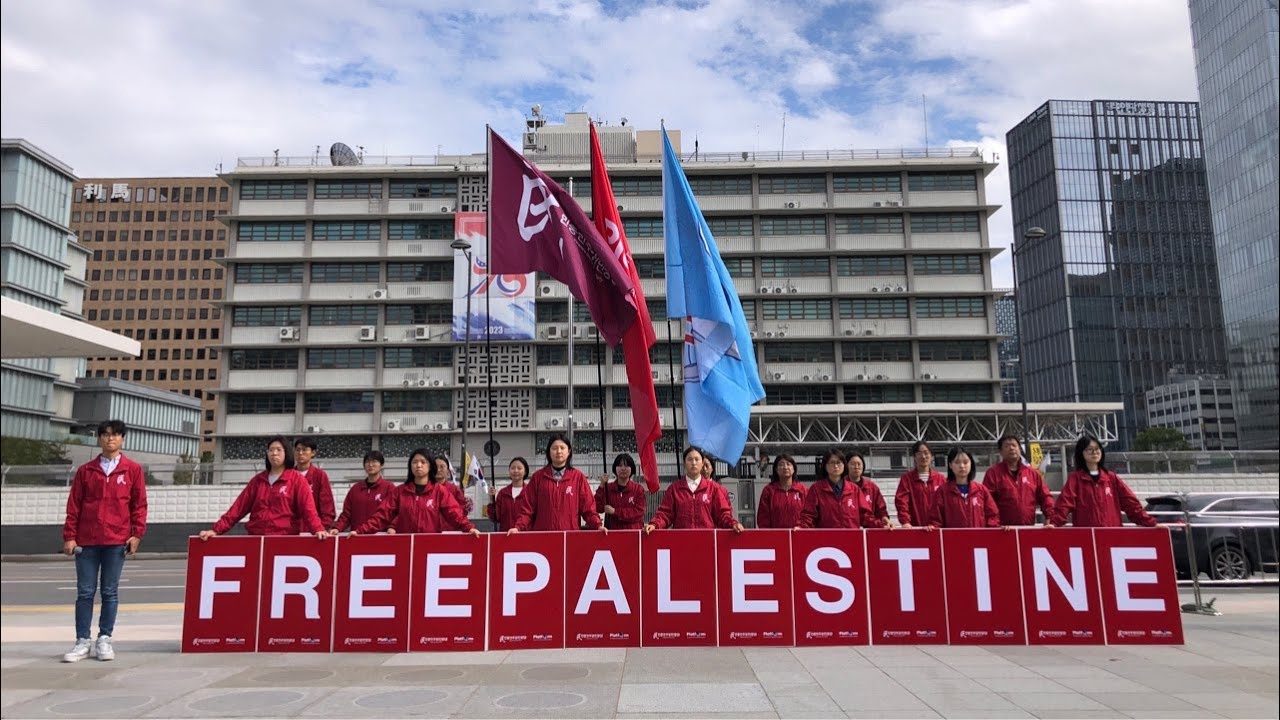
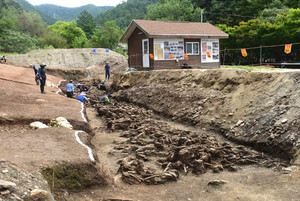
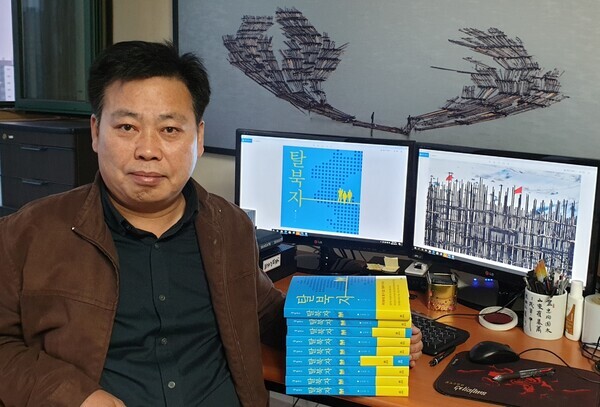
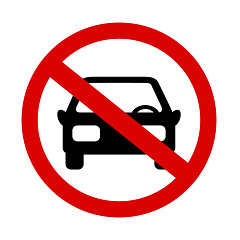


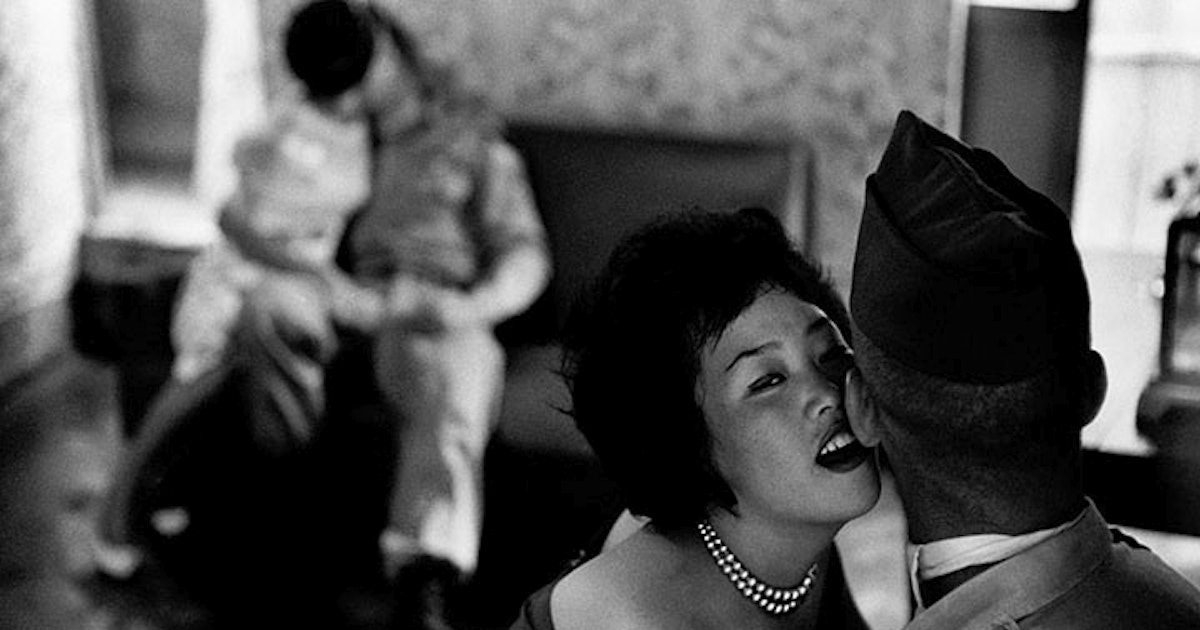


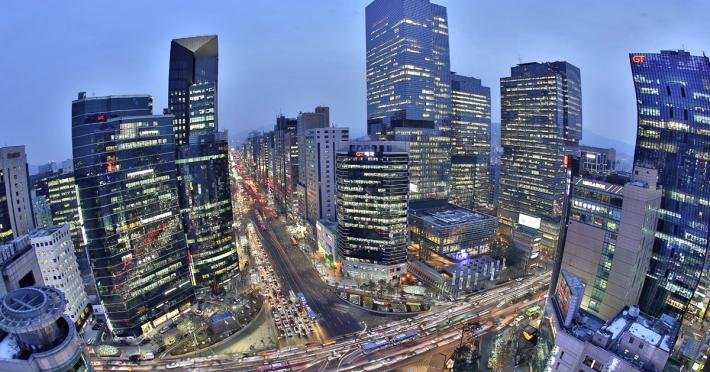
Remember there is c/documentaries! You might find something good there too.
Taken for a Ride - The U.S. History of the Assault on Public Transport in the Last Century - This documentary takes a look at the old public transport system of Los Angeles and follows the step-by-step process by which it was dismantled by General Motors. IMO it’s a good one for seeing a concrete example of the actual steps that privatization can take – GM bought the streetcars after a campaign calling them inefficient/run down etc., then after buying them, let them degrade in quality and service, then replaced them with a supposedly superior bus system. Then they allowed the buses to give poor service, ultimately promoting individual cars over buses and highway expansions as the solution to traffic congestion.
Former CIA Agent John Stockwell Talks about How the CIA Worked in Vietnam and Elsewhere - This interview clip is only 15 minutes long but gives a very concise and specific example of how the CIA manipulates the media by having contacts with reporters and passing them a mixture of true and false stories, basically coming up with bullshit and fake photos that will go viral and spread CIA talking points while the “source” of the information becomes more and more obscured as the story is passed around different news agencies, as well as how the CIA have funded the production of countless books, whose authors were allowed to write whatever they wished as long as they included this or that specific point, and that these authors have gone on to have solid and respected careers in academia.
Cybersocialism: Project Cybersyn & The CIA Coup in Chile - From what I recall it gives a good overview of what happened in Chile. In my opinion, due to Chile’s case being so well-documented, it’s a case which people without a lot of background knowledge can start to learn about the process of CIA coups from and how it relates to protecting the interests of the bourgeoisie. A viewer of this documentary can then start applying that knowledge to many other cases where a similar pattern comes up (country tries to nationalize industries/resources which are in foreign imperialist hands => economic loan denial/asset freezes/sanctions are implemented by the imperialists & opposition groups and terrorists in the country are funded & coups are orchestrated by the imperialist power.)
The Human Face of Russia - Simply, lots of footage of everyday life in 1980s USSR. As I recall, it was a foreign group going there to film and fact-check about the living standards and learn about various political and social activities of the people. IIRC it was a pretty calm and positive documentary, a good one if you need some time away from more heavy and upsetting topics.
The Weight of Chains - About the breakup of Yugoslavia.
The U.S. School That Trains Dictators & Death Squads - About the School of the Americas.
Gaza Fights For Freedom - About the Great March of Return.
The Lobby - Four-part undercover investigation into Israel’s covert influence campaign in the United States.